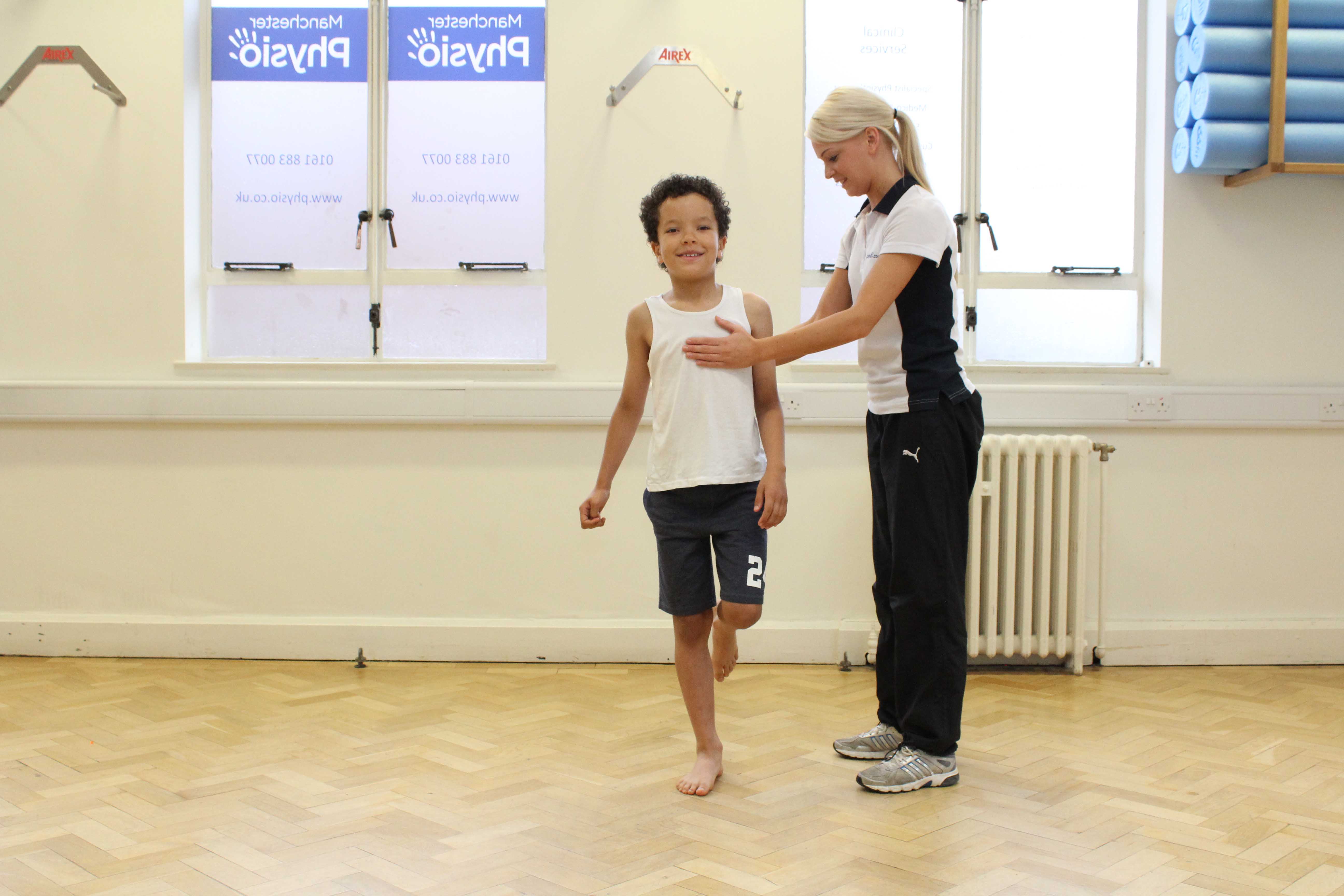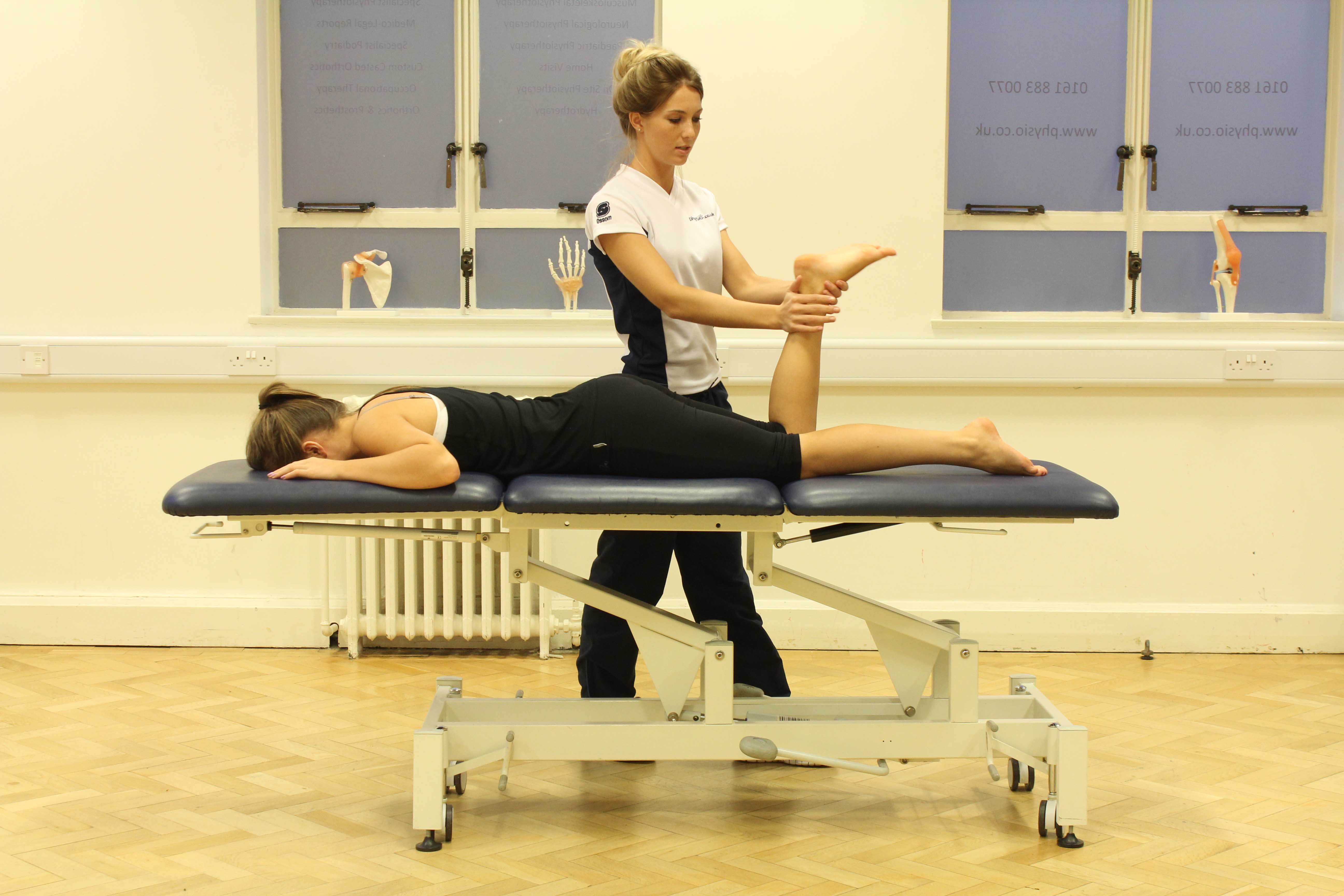What is Freiberg’s disease?
Freiberg’s disease is damage to the round head of the second metatarsal in the foot and its joint with the adjacent bone. Freiberg’s disease causes pain and most commonly affects children between the age of 14 and 18 years. Freiberg’s disease belongs to a group of related diseases termed ‘osteochondrosis’ which involves growth disturbances of the rounded head of the bone.
 Above: Balance and stability exercises supervised by experienced paediatric physiotherapist
Above: Balance and stability exercises supervised by experienced paediatric physiotherapistWhat causes Freiberg’s disease?
The exact cause of Freiberg’s disease is unclear. It is thought to be caused by disruption to the blood supply to the metatarsal head as a result of direct vascular injury, fracture or repetitive trauma. Also altered movement around the forefoot can lead to abnormal loading on the second metatarsal and make some children more susceptible to Freiberg’s disease.
How is Freiberg’s disease diagnosed?
Freiberg’s disease can be diagnosed with an x-ray which will detect changes to the second metatarsal.
 Above: Soft tissue massage and mobilisations to relieve pain and stiffness
Above: Soft tissue massage and mobilisations to relieve pain and stiffnessWhat are the symptoms of Freiberg’s disease?
Symptoms of Freiberg’s disease involve:
- Pain in the forefoot, usually around the head of the second metatarsal
- Swelling
- Reduced range of movement
- Wearing high heeled shoes makes the condition worse
Physiotherapy for Freiberg’s disease
Freiberg’s disease is usually treated conservatively. At Physio.co.uk we provide specialist physiotherapy treatment for Freiberg’s disease to promote recovery and help your child get back to daily and sporting activities as soon as possible. Physiotherapy treatment will be tailored to your child and may involve:
- Reducing pain and swelling by offloading the metatarsal head with padding and orthoses. Our physiotherapists work closely with podiatrists who can provide your child with specialist footwear or orthoses if necessary.
- Tailored exercise programme with techniques and advice on how to gradually increase your childs activity levels in a safe and effective way.
- Muscle stretching to place less stress on the forefoot
- Exercises to improve the way your child stands, balances and walks.
Casting and Surgery
For advanced stage disease, cast immobilisation may be required for up to 12 weeks. For children with persistent symptoms, surgery may be performed. Physiotherapy treatment following casting or surgery is important as it will help restore your childs function and mobility and get them back to a level they were previously.
At Physio.co.uk, our specialised paediatric physiotherapists we will provide physiotherapy treatment in order to:
- Restore range of movement and prevent stiffness
- Increase muscle strength
- Improve balance
- Maximise mobility
- Improve independence with everyday activities
For more information to see if your child would benefit from physiotherapy or to book an appointment please call 0330 088 7800, or book online today!

 0330 088 7800
0330 088 7800

































